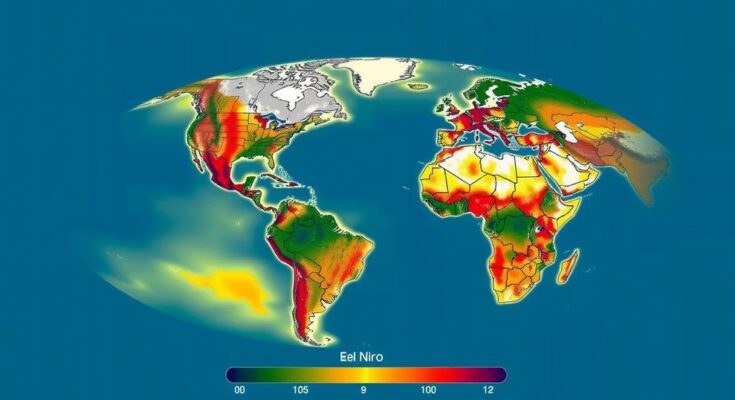The COP29 concluded in Baku, pledging to increase climate finance for developing countries to $300 billion by 2035. Nonetheless, experts warn that this is insufficient amidst a climate crisis that threatens to breach the 1.5°C threshold. Over 1.6 billion people have faced extreme weather events, resulting in significant economic losses, particularly in low-income nations where the burden is disproportionately heavy. Immediate global efforts are necessary to support climate adaptation and resilience.
The recent conclusion of the United Nations Climate Change Conference (COP29) in Baku has resulted in a new climate agreement aimed at significantly increasing climate finance for developing nations, rising from $100 billion to $300 billion annually by the year 2035. Despite this positive development, many experts argue that the allocation remains insufficient, especially in light of the accelerating climate crisis exemplified by extreme weather events linked to phenomena such as El Niño and La Niña.
This year stands to be critical, potentially marking the first instance of a temperature rise breaching the 1.5°C threshold—the target set to limit devastating climate impacts. Over the last five years, more than 1.6 billion individuals have faced severe weather disruptions, with economic losses attributed to climate-related disasters estimated between USD 115 billion and USD 300 billion each year.
Low-income countries, particularly in Africa, confront the most burdensome consequences, with many nations losing between 5-10% of their GDP annually due to climatic changes. This disparity underscores the urgent need for climate justice; despite contributing minimally to global emissions, the most vulnerable populations are at risk of being marginalized in efforts to enhance climate adaptation and build resilience. The call, therefore, is for a collective effort to financially support those disadvantaged communities, ensuring they are equipped to confront and adapt to ongoing environmental crises.
The International community has increasingly recognized the plight of developing countries facing the dual challenges of climate change and economic disparities. The COP29 conference emerged as a crucial platform for negotiations surrounding climate finance, especially amid projections that climate impacts will escalate significantly if global temperatures continue to rise unchecked. Events such as El Niño and La Niña exacerbate weather extremes, further complicating these nations’ capacity to respond and adapt, thereby highlighting the need for urgent action and support from wealthier nations. The alarming projections surrounding the possible breach of the 1.5°C threshold serve as a wake-up call for all nations to reevaluate their commitment towards climate action. Low-income and climate-vulnerable nations are not only disproportionately affected but are also ill-equipped to manage these changes, thereby demanding a concerted effort towards equitable financial and technical assistance.
In summary, while the COP29 outcomes represent a step forward in securing climate finance, the commitment remains critically inadequate against the backdrop of escalating climate crises. With the potential crossing of the 1.5°C threshold, it is imperative that the global community enhances its focus on supporting low-income countries, particularly those most adversely affected by climate change. The time to act decisively for climate justice and adaptation is now, as millions face an uncertain and perilous future.
Original Source: reliefweb.int




